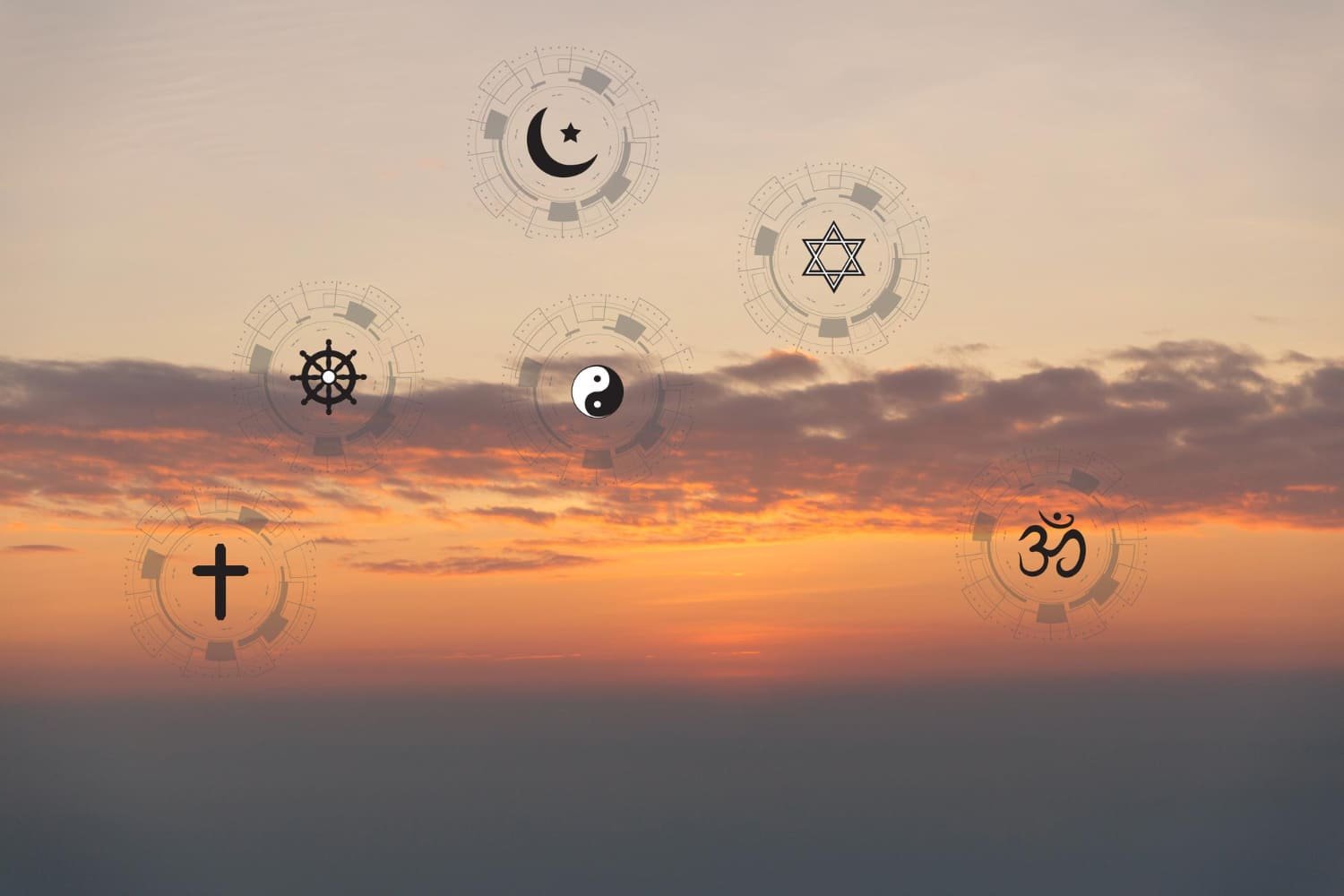Jainism and Hinduism are two of the oldest and most prominent religions in India. Both religions have a rich history and are still widely practiced today. While there are similarities between the two religions, such as the belief in karma and the cycle of birth and death, there are also significant differences that set them apart.
Jainism is a religion that emphasizes non-violence and the importance of the soul. Jains believe that every living being has a soul and that the ultimate goal of life is to achieve liberation from the cycle of birth and death.
Hinduism, on the other hand, is a diverse religion with many different beliefs and practices. Hindus believe in the existence of one supreme being, but also worship many gods and goddesses.
For those who are interested in learning more about these two religions, it can be difficult to know where to start.
This article will explore the key differences between Jainism and Hinduism, including their beliefs, practices, and history. By the end of this article, readers will have a better understanding of these two religions and be able to make an informed decision about which one resonates with them.
Origins and History
Jainism and Hinduism are two ancient Indian religions with different origins and histories. Jainism originated in the 7th-5th century BCE in the Ganges basin of eastern India, while Hinduism started somewhere between 2300 BCE and 1500 BCE in the Indus Valley, near modern-day Pakistan.
Jainism was founded by Mahavira, who was born in 599 BCE in the ancient kingdom of Vaishali, which is now part of present-day Bihar. Mahavira was born into a royal family and renounced his worldly possessions at the age of 30 to become an ascetic.
He spent the next 12 years in meditation and self-discipline before attaining enlightenment. Mahavira’s teachings emphasized the importance of non-violence, self-control, and detachment from material possessions.
Hinduism, on the other hand, has no single founder and no specific date of origin. It evolved over a period of thousands of years through the blending of various religious traditions, cultural practices, and philosophical ideas in the Indian subcontinent.
Hinduism is a diverse religion with many different schools of thought and practices. It encompasses a wide range of beliefs, from polytheism to monotheism, and includes various rituals, ceremonies, and festivals.
Both Jainism and Hinduism have had a significant impact on Indian culture and society. They have coexisted for centuries and have influenced each other in various ways. While there are some similarities between the two religions, such as the belief in karma and reincarnation, there are also many differences in their beliefs, practices, and traditions.
Beliefs and Practices
Jainism and Hinduism are two ancient religions that originated in India. Both religions have unique beliefs and practices that are different from each other. In this section, we will explore the main differences between Jainism and Hinduism in terms of their beliefs and practices.
Beliefs
Jainism and Hinduism have different beliefs about the nature of God, the soul, and the afterlife. Jainism believes in the existence of an eternal soul that is trapped in the cycle of birth and death.
The ultimate goal of a Jain is to achieve liberation from this cycle of birth and death, and attain a state of eternal bliss called moksha. Hinduism, on the other hand, believes in the existence of a supreme being called Brahman, who is the creator of the universe.
Hindus believe that the soul is eternal and that it is reborn after death in a new body. The ultimate goal of a Hindu is to achieve union with Brahman, which is called moksha. Another major difference between Jainism and Hinduism is their approach to non-violence.
Jainism places a strong emphasis on non-violence and believes that all living beings, including animals and plants, have a soul and should be treated with respect and compassion. Hinduism also values non-violence, but it is not as central to their beliefs as it is in Jainism.
Practices
Jainism and Hinduism have different practices when it comes to worship and rituals. Jainism places a strong emphasis on meditation, self-discipline, and asceticism.
Jains practice a strict vegetarian diet and avoid eating root vegetables, as they believe that these vegetables contain many microorganisms that could harm living beings. Jains also practice a daily ritual called puja, which involves the worship of idols and the recitation of prayers.
Hinduism, on the other hand, has a wide variety of practices and rituals that vary depending on the region and sect. Hindus worship a variety of gods and goddesses, and their rituals often involve the use of fire, water, and other elements. Hindus also celebrate a variety of festivals throughout the year, such as Diwali, Holi, and Navratri.
In conclusion, Jainism and Hinduism have distinct beliefs and practices that set them apart from each other. While both religions value non-violence and have similar goals of achieving liberation from the cycle of birth and death, they have different approaches to achieving these goals.
Jains emphasize meditation, self-discipline, and strict vegetarianism, while Hindus have a wide variety of practices and rituals that vary depending on the region and sect.
Comparison of Jainism and Hinduism
Jainism and Hinduism are two ancient religions that originated in India. While they share some similarities, there are also several differences between the two religions. Here is a brief comparison of Jainism and Hinduism:
| Aspect | Jainism | Hinduism |
|---|---|---|
| Founder | Mahavira | No single founder |
| Belief in God | Not necessary for liberation | Belief in one supreme God or many gods and goddesses |
| Reincarnation | Belief in reincarnation and karma | Belief in reincarnation and karma |
| Non-violence | Emphasis on non-violence and respect for all life forms | Emphasis on non-violence, but some sects allow for violence in certain situations |
| Worship | Minimal emphasis on worship | Emphasis on worship of deities and rituals |
| Scriptures | Agamas and other Jain texts | Vedas, Upanishads, and other Hindu texts |
While both Jainism and Hinduism believe in reincarnation and karma, Jainism places a greater emphasis on non-violence and respect for all life forms. Hinduism, on the other hand, places a greater emphasis on worship of deities and rituals.
Jainism does not require belief in a supreme God for liberation, while Hinduism believes in one supreme God or many gods and goddesses. Additionally, Jainism was founded by Mahavira, while Hinduism has no single founder.
Both Jainism and Hinduism have their own set of scriptures. Jainism has the Agamas and other Jain texts, while Hinduism has the Vedas, Upanishads, and other Hindu texts.
Which is better?
It is not appropriate to compare religions and label one as better than the other. Both Jainism and Hinduism have their unique characteristics, beliefs, and practices. They both have their own strengths and weaknesses. It is up to the individual to decide which religion resonates with their beliefs and values.
Some people may prefer Jainism’s emphasis on non-violence, vegetarianism, and asceticism. They may appreciate the Jain concept of anekantavada, which acknowledges the complexity and diversity of reality.
On the other hand, some people may find Hinduism’s diverse range of practices, deities, and philosophies more appealing. They may be drawn to the Hindu belief in karma and dharma, which provides a framework for ethical living.
Ultimately, the decision of which religion is better is a personal one. It is important to respect and appreciate the differences between religions and to recognize that each person’s journey is unique.
Conclusion
In conclusion, Jainism and Hinduism are two of the oldest and most complex religions in the world. Both religions share many similarities in their teachings and practices, such as the belief in karma and reincarnation.
However, there are also significant differences between the two religions, including their beliefs on the nature of God, the soul, and the ultimate goal of human existence. Jainism emphasizes the importance of non-violence and self-discipline, while Hinduism places more emphasis on the worship of deities and the pursuit of spiritual knowledge.
Jainism also promotes a strict vegetarian diet, while Hinduism is more flexible in its dietary restrictions. While both religions have their own unique strengths and weaknesses, it is not appropriate to say that one is better than the other. Each religion has its own merits and can provide spiritual guidance and fulfillment to its followers.
Ultimately, the choice between Jainism and Hinduism (or any other religion) is a personal one that should be made based on individual beliefs, values, and experiences.







